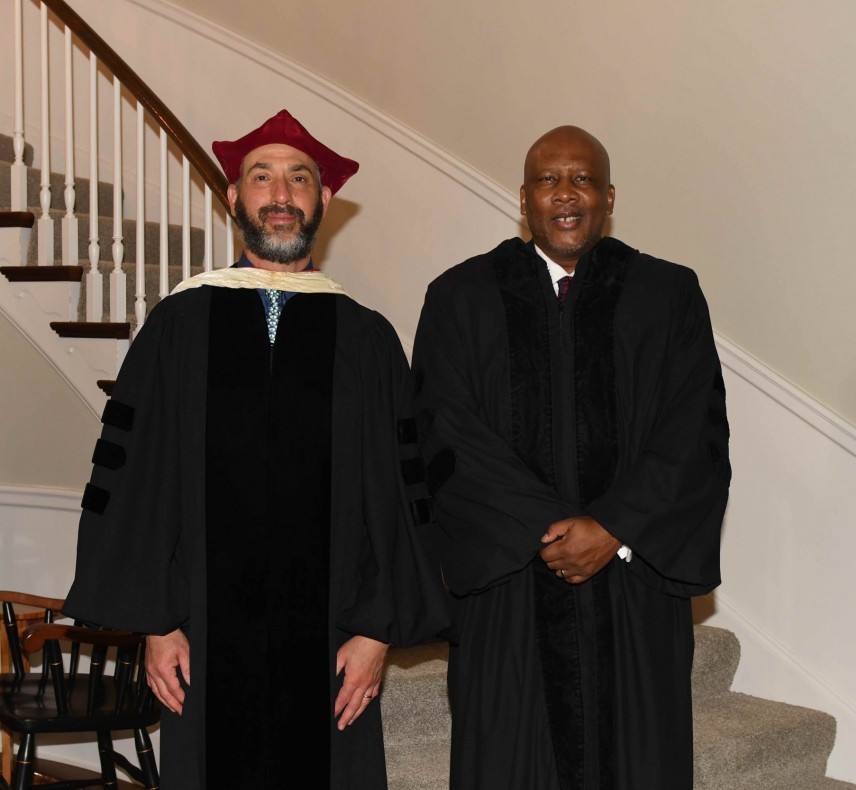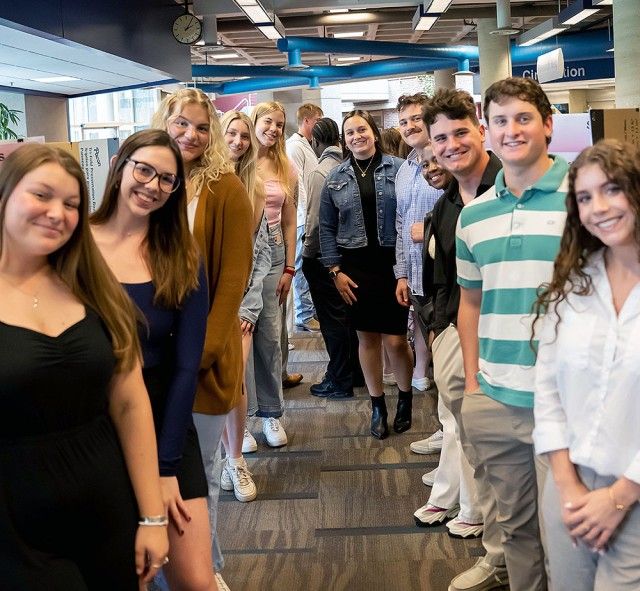Scott Rosenberg (left) poses with His Majesty King Letsie III, the Constitutional Monarch of the southern African Kingdom of Lesotho at Commencement 2018.
The Office of the Provost has announced that Scott Rosenberg, professor of history, will hold the H. Orth Hirt Chair in History, endowed in memory of the founder of Erie Insurance Company, who graduated from Wittenberg in 1911, and whose children, the late F. William Hirt and the late Susan Hirt Hagen, also followed in their father’s footsteps, graduating from Wittenberg in 1947 and 1957, respectively. Endowed chairs are permanently funded positions typically established through gifts from donors to support excellence in teaching and scholarship.
“Professor Rosenberg embodies and models what liberal arts institutions offer: excellence in scholarship, excellence in teaching, and excellence in mentoring,” said Mary Jo Zembar, interim provost and professor of psychology. “We are proud to honor him with the Hirt Chair.”
Repeatedly recognized for his superb teaching, Rosenberg received the 2005 Omicron Delta Kappa Award, SOCHE Award for Faculty Excellence in Teaching in 2006 and 2008, and the 2007 Alumni Association Award for Distinguished Teaching. His courses cover a wide spectrum of African and African diaspora topics including Contemporary Africa: The Causes of Genocide, South Africa: The Making of Apartheid, and Race in South Africa and the United States.
As the Honorary Consul to the South African Kingdom of Lesotho, Rosenberg injects modern diplomacy into his courses illustrating tangible consequences of oppression, exploitation, and the aftermath of Apartheid in southern Africa broadly, but also within the country of Lesotho. He has published numerous books and articles, and has presented more than 30 public lectures and presentations that focus on Lesotho. One of Rosenberg’s most significant additions to the field of history is his Historical Dictionary of Lesotho, which was created to supplant and replace a Eurocentric history of Lesotho. His book, Promises of Moshoeshoe: Culture, Nationalism, and Identity in Lesotho, has also been used in history, anthropology, and women’s studies classes at the National University of Lesotho and is now in its third printing.
Inspired by his own years in the Peace Corps, Rosenberg has provided more than 400 Wittenberg students the opportunity to travel to Lesotho, where they learn about the history, economics, politics, and culture of Lesotho as well as contribute to service projects. Program participants have helped to build houses, plant gardens, create playgrounds, and volunteer at orphanages and at a pediatric AIDS clinic, among other activities. Many of the sites the students volunteer at are projects begun by the Springfield Rotary, and now both groups work together toward their sustainability.
In addition, Rosenberg helped establish the African and Diaspora Studies (AFDS) program in 2000, and Wittenberg’s Peace Corps-endorsed Preparation Program in 2016 – one of only a handful of such programs in the country. Wittenberg was only the second liberal arts college in the United States to carry the program when the agreement was signed.
Moreover, Rosenberg collaborated with a small group of Wittenberg students and faculty in establishing the Lesotho Nutrition Initiative (LNI) in 2014. LNI is 501c3 non-profit that provides more than 700,000 meals a year to 2,500 children in Lesotho suffering from severe malnutrition and stunting.
The Hirt Chair was first awarded in 1998. Rosenberg was nominated by colleagues in the Department of History for the distinguished chair last year.







